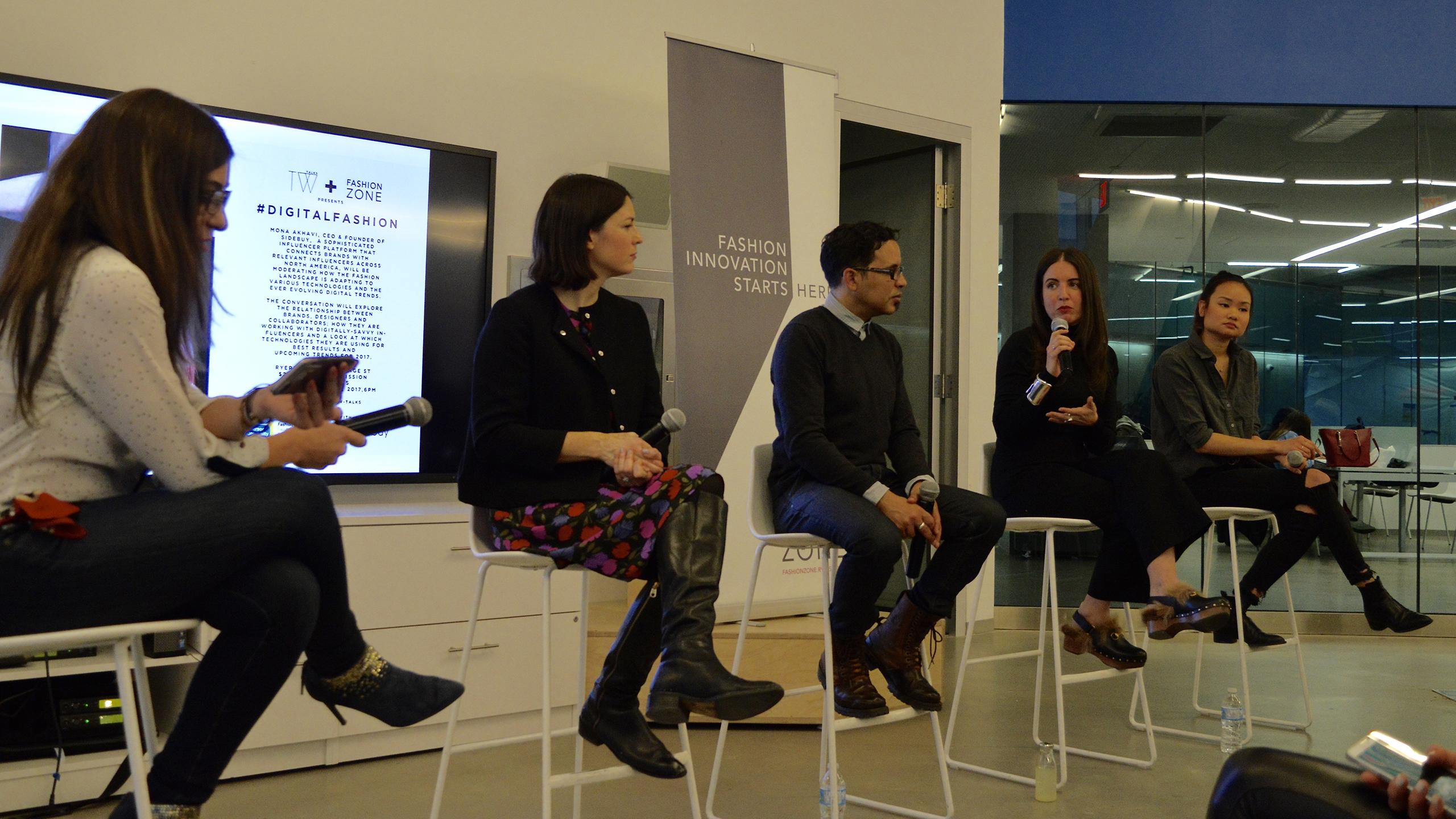By Shawna O’Neill
As Toronto fashion week comes to a close, Ryerson fashion professor Henry Navarro Delgado—alongside three panelists in the fashion industry—discussed Toronto’s fashion identity, and how the industry has changed in a digital age, at the #DIGITALFASHION panel hosted at the SLC on March 12.
Delgado said he believes that there is no definitive event that utilizes our city’s talents, and he owes it to the diversity of Toronto’s culture and fashion scene, as well the numerous fashion events that happen here throughout the year.
“Often times, people try to compare fashion in Toronto to fashion in either New York or London,” said Delgado. “Those places, they have become iconic because their fashion week really styles the character of their city first, and with that, puts forward fashionable content. Toronto, in that case, is characterized completely different. And one of the things that sets Toronto apart is diversity.”
The event drew an intimate crowd with a highly engaged audience. It was presented by Toronto Women’s Fashion Week (TW-FW) and the Fashion Zone, and the discussion included topics like developing a fashion identity, and the advantages of doing so on a large scale and small scale.
One of the panelists, Victoria Hui, voiced how she believes that micro-influencers have more of an advantage than macro-influencers in the industry, due to the level of engagement and trust between the influencer and followers.
“Micro-influencers, I would say, that’s probably the better bet to put your dollars behind because their followers are really listening to them. They’re understanding the messages that they’re trying to convey, and creating relationships with these individuals. They’re not just following them for the sake of following,” said Hui, who is a micro-influencer with her Toronto-based beauty blog, The Lust Listt.
Hui said she believes that endorsing what a company or individual believes in, and building a long-term relationship with that brand, provokes audiences to reach out to the influencer. The foundation of trust builds a comfortable bridge to ask for advice or feedback, or simply engage in more conversation.
Eden Mitelman, a Ryerson journalism student, can relate to a more intimate involvement within the industry like Hui. As the founder of Emme & Edly Styling Services Inc., a styling and personal shopping company, Mitelman attributes her company’s success to providing meaningful and fulfilling relationships with customers.
“They (micro-influencers) might seem small and the potential of entering that market may sometimes seem frightening, or even not as promising, but in reality it is,” said Mitelman. “People crave human interaction and being able to have an arms-length reach to these clients, or customers, actually provides something that a large scale company usually lacks.
The panel discussed how companies and brands need to track which channels they are reaching a more engaged audience on, whether it be Facebook or Instagram, and then invest into those platforms.
They contended that it’s easy to be spread too thin considering the multitude of evolving social media platforms. But cultivating a strong, online identity with a niche audience is a current, trending pair between technology and fashion.










Leave a Reply